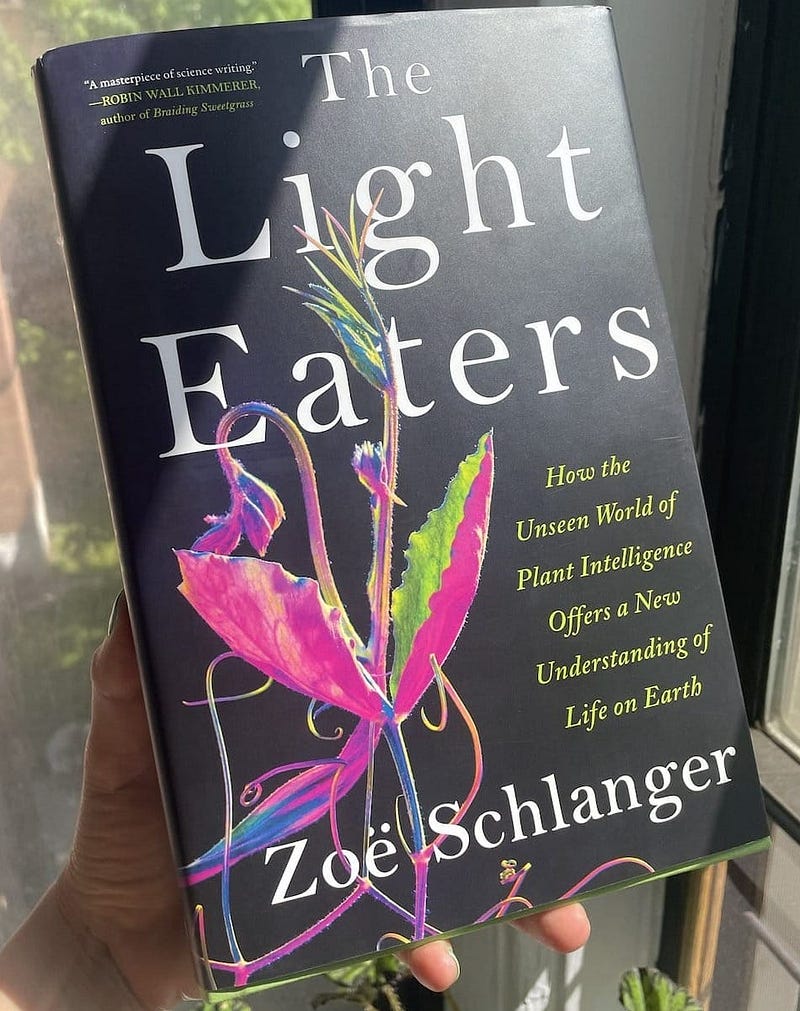New Insights on Plant Intelligence from 'The Light Eaters'
Written on
Chapter 1: The Launch of 'The Light Eaters'
Today marks the official release of Zoë Schlanger's book, 'The Light Eaters — How the Unseen World of Plant Intelligence Offers a New Understanding of Life on Earth.' The tagline invites readers to reconsider their perceptions of plants, suggesting that they may never view these organisms the same way again.
In her work, Schlanger explores the concept that plants exhibit a form of intelligence that has largely been overlooked by conventional science. She explains how plants communicate, adapt, and make informed decisions, thereby challenging traditional definitions of sentience. This portrayal presents plants as active participants within their ecosystems, capable of complex behaviors that imply a form of consciousness.
As noted in previous discussions on this blog, the scientific community's cautious stance toward new claims is understandable, given its reliance on reproducible experiments—criteria that personal anecdotes cannot fulfill. Our interactions with pets, such as dogs, cats, and birds, suggest a broader range of consciousness. Encouragingly, it seems the scientific view on potential consciousness is finally broadening to include plants.
Additionally, it's significant that the New York Declaration on Animal Consciousness was recently updated and signed on April 19, 2024. This declaration acknowledges the consciousness of various animals, from all vertebrates to certain invertebrates like octopuses and insects, challenging long-held assumptions and advocating for an ethical reevaluation of our relationships with diverse life forms.
Section 1.1: Understanding 'Plant Blindness'
Schlanger introduces the concept of "plant blindness," a term coined by Elizabeth Schussler and James Wandersee in 1998. This phenomenon describes the tendency to overlook the plants around us, leading to an underappreciation of their significance in our lives.
Subsection 1.1.1: A Global Perspective on Plant Behavior

The book features recent research findings and takes readers on a global journey, offering a fresh perspective on plant life. Scholars have revealed that plants can communicate, identify kin, engage in social behaviors, respond to sounds, adapt to their surroundings, store memories that influence their life cycles, and even manipulate animals to their advantage. 'The Light Eaters' delves into the intricate world of plant life, prompting us to rethink our definitions of agency, consciousness, and intelligence. Closer examination reveals that plant intelligence likely does not mirror human intelligence, having evolved as a distinct yet parallel system.
Chapter 2: A Deeper Dive into Plant Intelligence
I recently began reading the book, and much of the insights from this entry stem from listening to Schlanger's interview on NPR's Fresh Air—thanks to my wife for the recommendation! The breadth of content surpasses what can be summarized in a single blog post, but I highly encourage you to read or listen for a more profound understanding.
Final Thought: Rachel Carson, a groundbreaking environmentalist and author, once expressed her awe for the natural world, nurturing a deeper sensitivity to our surroundings. As we expand our understanding of plant intelligence, we are prompted to reevaluate our perceptions of life and consciousness. How might this evolving understanding of consciousness across various life forms influence our interactions with the plant and animal species that inhabit our world?